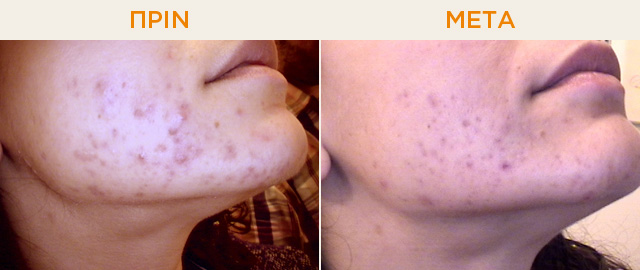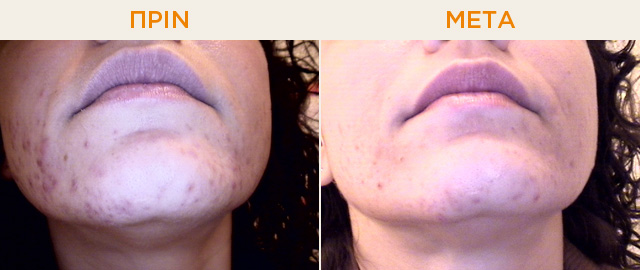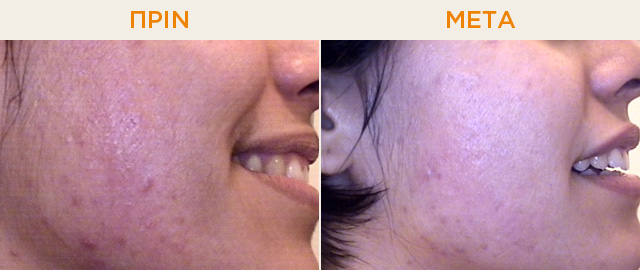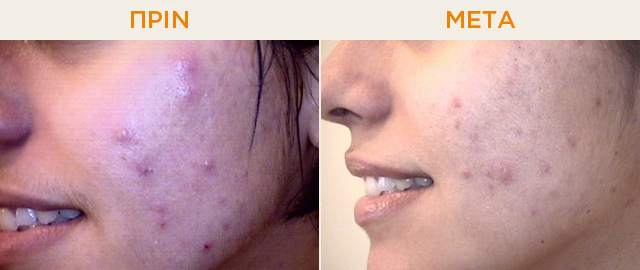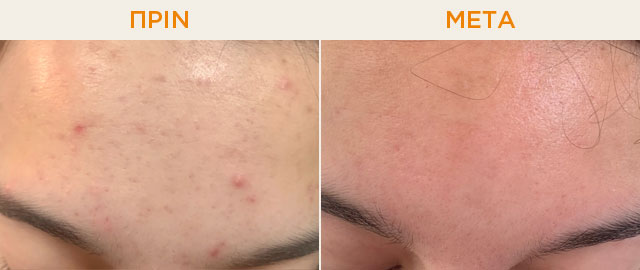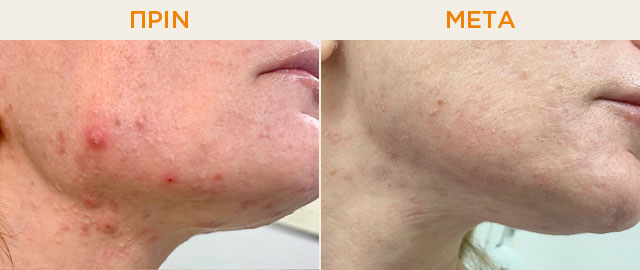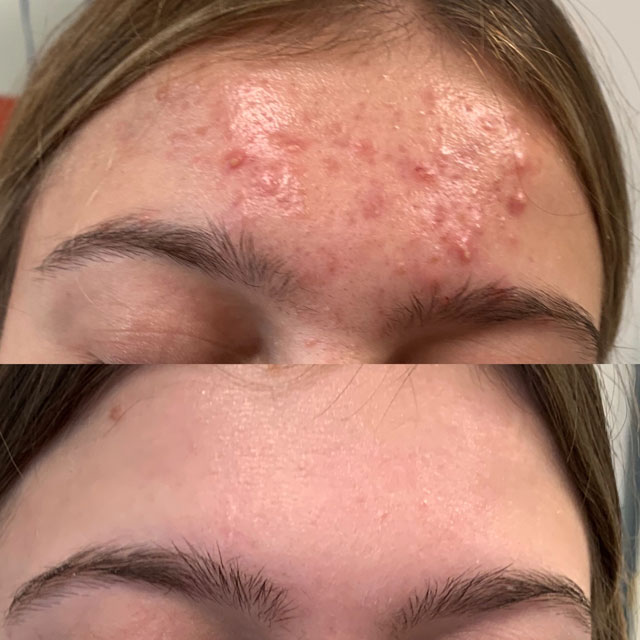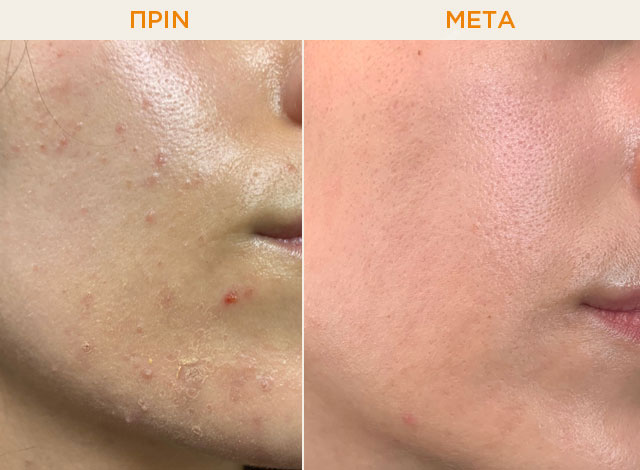The etiology of acne is not fully known, but many factors are etiologically involved in its occurrence. Heredity, sebum overproduction, Propionibacterium acnes (P. acnes), hormonal disorders and the "blockage" of sebaceous glands duct by skin cells are causes that contribute to its development. The face, upper chest and back are mainly affected. It is a problem that causes severe psychological stress especially at younger ages and tends to relapse. After the conclusion of each successful treatment, a maintenance treatment is recommended. Treatment of the remaining scars can also be performed. The dermatologist is a specialist who can recommend the efficient acne treatment and investigate the cause. Acne maybe caused by hormonal disorders (polycystic ovaries, congenital adrenal hypertrophy, and thyroid dysfunction).
The severity of acne is varies and each case is treated differently. In severe cases, there is a risk of scarring. The factors that are associated with acne exacerbation are stress due to increased cortisol production which increases sebum production, hormonal fluctuations, increased sweating. The sun, in most cases, has a positive effect on acne, while there is no positive or negative correlation with certain foods, although a diet rich in fats may aggravate the condition.
The suggested treatments vary depending on the type and severity of the acne, the patient’s age and the year’s season. At younger ages and for mild acne, topical treatment with cleansing soaps, creams that control oiliness, topical antibiotics and retinoids, azelaic acid and benzene peroxide is usually recommended. There are also combinations of the above substances in one product. Each dermatologist suggests the appropriate product accordingly and often the treatments are alternated depending on the season and the response to the treatment.
In comedonal acne, the extraction of sebum is very helpful. This procedure should be performed by a dermatologist. Patients should follow instructions for home treatment to prevent recurrences.
In more extensive or more severe types of acne, topical treatment with oral antibiotics is combined. It is emphasized that the effectiveness of antibiotics after stopping the treatment that lasts 4-6 months is around 50%. Antibiotic treatment is not preferred as the patient waste time from starting the most effective retinoid treatment.
Oral retinoid is the most effective treatment for acne. The efficacy of this treatment is up to 80%. It is recommended in severe acne or chronic cases of acne or when we need clearance with the least chances for recurrences. The patient needs to be monitored closely by a dermatologist. The treatment is dosage dependent on the patient’s weight and is administered during periods without intense sunlight due to the photosensitivity that it causes. Alcohol and strenuous exercise are prohibited during treatment. Retinoid treatment is indicated for ages 12 years old and over and pregnancy is strictly prohibited during treatment. The dryness of the skin and mucous membranes are a common side effect, while hematological and biochemical disorders are less common. The usual abnormalities noticed are increase in transaminases (enzymes indicative of liver function), cholesterol and triglycerides. However, in these few cases the disorders are reversible and disappear completely after stopping treatment. In rare cases, it is necessary to repeat the treatment.
When there is a hormonal disorder such as polycystic ovary syndrome, treatment with contraceptives or hormones also helps with acne.
Other treatments, when oral treatments are contraindicated or the patient does not want them, are with acne-specific peelings, lasers and photodynamic therapy. However, the effectiveness is lower than that of isotretinoin.
Especially for the summer season, acne patients should keep in mind the following:
Sun exposure often improves acne. However, overexposure may exacerbate acne.
Acne Treatment with Blue light
Acne is a chronic skin condition and often treatments take a long time to treat it.
Blue light treatment is very effective for inflammatory acne. The blue light system is a light source with a wavelength of 420 nanometers. It works by "sterilizing" the skin from the Propionibacterium acnes (P. acnes), killing it, while it also acts on the sebaceous glands, reducing sebum production and pores size.

This is a very fast treatment as in 3-4 sessions there is over 80% improvement of inflammatory acne. More severe types of acne (cystic acne) improve but not as dramatically. The sessions take place every week and so in about a month the acne disappears while improvement is obvious from the very first session.
The results of the blue light treatment should be followed by home prescription medication. The treatment is fast, painless and without irritations. Patients choose this treatment when they want immediate results or when other treatments are contraindicated.
